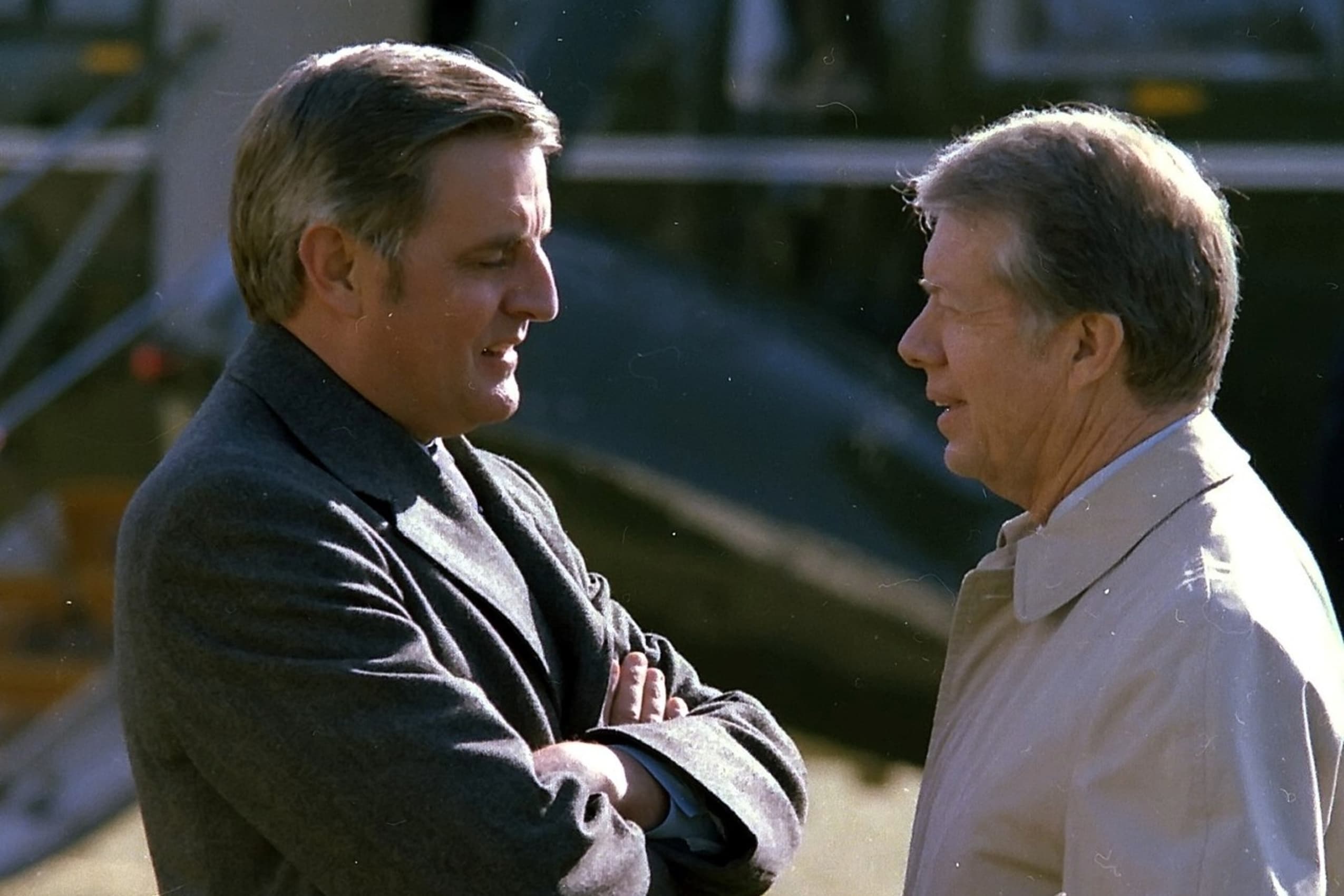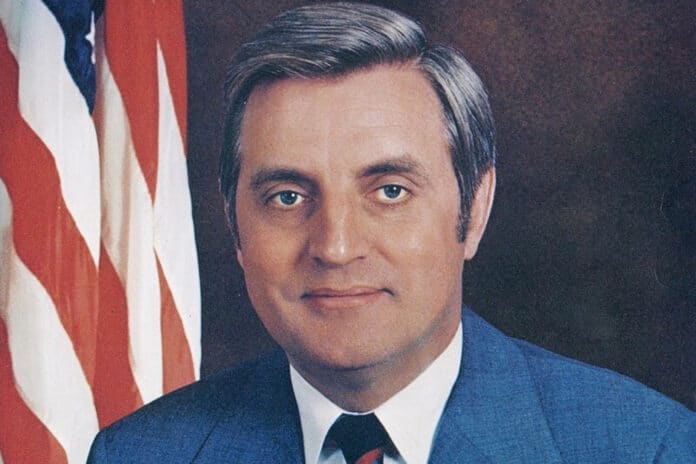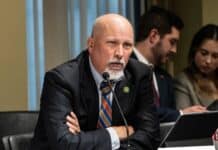Walter Mondale is one of Minnesota’s favorite sons. A liberal icon and perceived protégé of Hubert Humphrey, Mondale remains one of the most recognizable elected officials in Minnesota history. Having served as a state attorney general, United States senator, and vice president, Mondale gained his notoriety from the high offices he occupied.
Often overlooked in Mondale’s story is the unremarkable way in which he rose up the political ladder. The man found his way up not by winning elections nor by spearheading a movement. Instead, Mondale was a largely unsuccessful candidate who only achieved political fame by being handed every office he ever held.
Born in 1928 and raised in southern Minnesota, Walter “Fritz” Mondale grew up as the son of a Methodist minister. After graduating from Macalester college, Mondale served in the U.S. Army for several years and eventually graduated from the University of Minnesota’s law school.
Mondale first became involved in Minnesota Democratic politics in college, working as a staffer in Hubert Humphrey’s first successful campaign for the U.S. Senate in 1948. In the years that followed, Fritz worked as a lawyer and Democratic political operative, helping Orville Freeman win the governorship in 1956 and 1958.
Humphrey and Freeman would later prove essential in moving Mondale up the political ladder.
In 1960, Mondale received the first of several political appointments that would define his career. That year, Minnesota’s attorney general resigned from office, and Gov. Freeman, serving in his third term, appointed the 32-year-old Mondale to fill the position.
Just a few years later, the 1964 presidential election took place. Hubert Humphrey, by then a prominent United States senator most famous for his civil rights work, was selected as President Lyndon Johnson’s running mate. That November, President Johnson won the election. Humphrey was subsequently sworn in as vice president; becoming the first Minnesotan to serve as vice president and the highest-ranking elected official in state history.
As such, Humphrey resigned his seat in the United States Senate. Once again, Mondale was the beneficiary of a very convenient vacancy. Democratic Gov. Karl Rolvaag appointed Mondale to Humphrey’s U.S. Senate seat in December of 1964.
While Mondale did win elections for state attorney general and U.S. Senate during his career, he did not achieve either office via election. Instead, Mondale’s election victories for those offices occurred after he had already been appointed to them. In those elections, Fritz enjoyed the advantages of incumbency and won with comfortable margins.
After several years in the U.S. Senate, convenience came knocking again for Mr. Mondale. In 1976, Georgia Gov. Jimmy Carter improbably won the Democratic nomination for president of the United States, expertly besting a whole host of better-known, better-connected Washington, D.C. politicians. As his running mate, Carter selected Fritz Mondale, who by now was accustomed to receiving appointments for higher office.
In the November election, Jimmy Carter won a close election against incumbent Republican President Gerald Ford, thus elevating Mondale to the vice presidency.

Following a tumultuous four years in the White House, Carter lost a landslide defeat to Ronald Reagan in the 1980 presidential election. Reagan won 44 states, and Carter won just 6 states plus Washington, D.C.
This meant the 1984 Democratic presidential nomination would be wide-open.
In February of 1983, Mondale announced his presidential campaign in the chamber of the Minnesota House of Representatives. At the time, the former vice president was polling well against incumbent President Ronald Reagan. The other candidates running for the Democratic nomination included U.S. Senator Gary Hart of Colorado, U.S. Senator John Glenn of Ohio, Rev. Jesse Jackson, and several other candidates who did not have a significant impact.
Perhaps the most well-known moment from the 1984 Democratic primaries, and one of the most well-known moments from Mondale’s career, was a Democratic debate exchange in which Mondale questioned the substance of Sen. Hart’s policies. Quoting a Wendy’s advertisement, Mondale told Hart “When I hear your new ideas I’m reminded of that ad, ‘where’s the beef?’”
In the end, Mondale won the 1984 Democratic presidential nomination, his only major political victory that he had not previously been handed.
Despite the earlier polling advantage, the 1984 campaign soon developed into a one-sided affair. In short, the economy was doing well, and Reagan’s personal popularity was too much for Fritz to handle. Mondale lost 49 states to Ronald Regan, winning only Minnesota by less than 4,000 votes (0.18%).
After the campaign, Mondale returned to Minnesota and lived a relatively quiet life before receiving yet another appointment to another high office. In 1993, President Bill Clinton appointed Mondale to be America’s ambassador to Japan. Fritz served in that role until 1996.
Just a few years later, Mondale was pulled out of retirement for one last political endeavor.
In October of 2002, a plane carrying Democratic U.S. Sen. Paul Wellstone of Minnesota crashed. The senator, his wife, and several others perished. At the time, Wellstone was locked in a tough reelection campaign against St. Paul mayor and Democrat-turned-Republican Norm Coleman. As such, Minnesota Democrats scrambled to put forward a candidate in Wellstone’s stead.
They selected Walter Mondale.
However, Mondale lost the election to Coleman by two points. Coupled with his 49 state thrashing in 1984, Mondale’s 2002 defeat in Minnesota made him the only American in United States history to lose a general election in all fifty states.
At every turn, Mondale achieved high office because other people simply handed him those offices. The man’s electoral fortunes were marked by some of the most abysmal losses in American political history. Not a transformative figure, nor a political heavyweight, Mondale was a man who was simply in the right place at the right time — until he wasn’t anymore.
Nevertheless, many comparisons are often drawn between Walter Mondale and Hubert Humphrey. After all, the two men’s shared vice-presidential status make them the highest-ranking elected officials in Minnesota history. In reality though, their political capabilities differed dramatically.
Humphrey was a shrewd political operator who climbed the ranks of high office by winning elections for mayor of Minneapolis and U.S. Senate; Mondale was a largely unsuccessful candidate who was handed every political office he ever held.
Whereas Humphrey memorably declared that the Democratic Party should “walk forthrightly into the bright sunshine of human rights;” Mondale memorably quoted a fast-food commercial.











